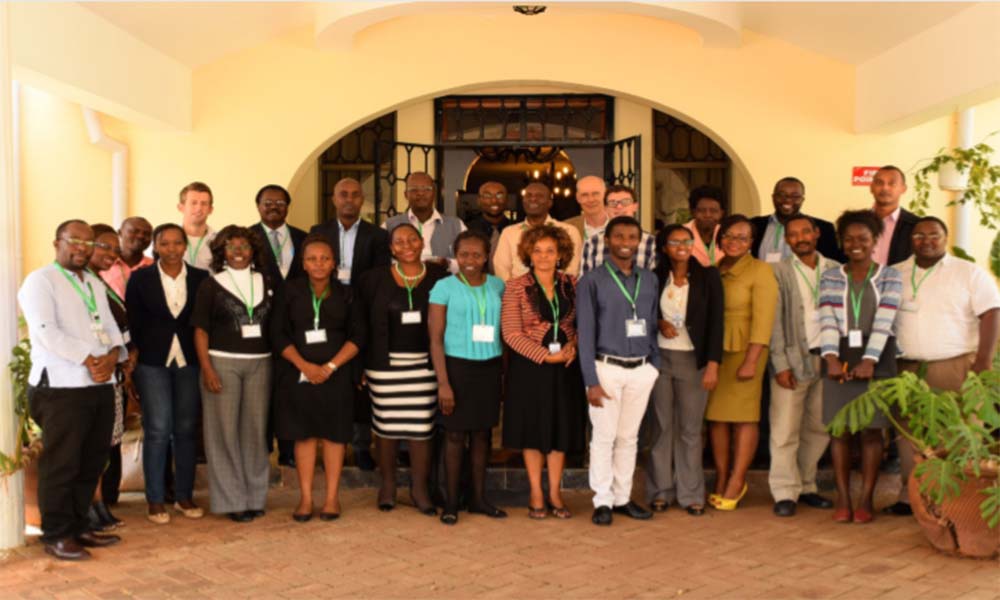The workshop was organized by the Africa Sustainability Hub (ASH), a networked research and knowledge exchange hub that convenes world leading experts on innovation systems and low carbon technology and development in Africa. ASH is a partnership between STEPS Centre at the University of Sussex, Stockholm Environment Institute (SEI), Africa Technology and Policy Studies (ATPS) and ACTS, where the secretariat is hosted. The workshop brought together key policy makers and practitioners selected from the East African region in addition to development partners who have supported climate change strategies, actions and innovations in Africa. The policy makers and practitioners were trained on various aspects of building innovation systems. The caucus provided one of the first platforms for East African policy practitioners, makers and their development partners to exchange ideas, experiences and challenges for building innovation systems for addressing climate change in the context of the sustainable development goals. This went on to enable policy makers and practitioners maximize institutional and financial opportunities for building climate compatible innovation systems within their countries.
This workshop aimed to provide climate policy makers in East Africa with the knowledge and capabilities necessary to leverage climate finance via their NDCs and use this to build innovation systems, catalysing increased flows of climate technologies to East Africa.
Main Outputs
Upon completion of the workshop and accessing the follow-on support, the participants were equipped to;-
- Implement their country’s NDC (or INDC) in ways that will leverage maximum international climate finance to build innovation systems around new and existing climate technologies. By the end of the event, the participants had identified priority actions for immediate implementation after the workshop.
- Understand the value of and how to implement, “Climate Relevant Innovation-system Builders” (CRIBs) as the key mechanism through which the NDCs are to be implemented. CRIBs are proposed networks of institutions based in low and middle income countries facilitating activities that build and strengthen innovation systems around locally appropriate low-carbon technologies. They mirror best practices in other nations that have been successful in harnessing science and technology to deliver significant economic development.
- Access follow-on resources via a dedicated web page.
- Access monthly expert support for 12 months following the training event from climate policy experts at ACTS and the University of Sussex, who will assist in the design and implementation under the NDCs.
- Provide a platform for knowledge and experience sharing with other East African policy makers, learning from best practice and taking advantage of regional learning and implementation opportunities.



